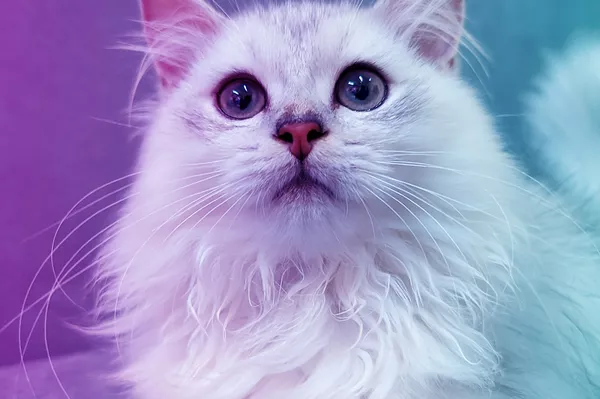Balinese cats, known for their elegant appearance and striking blue almond-shaped eyes, have captivated cat enthusiasts worldwide. As potential cat owners consider bringing these feline companions into their homes, one recurring question often arises: Are Balinese cats needy? To answer this inquiry comprehensively, we delve into the distinctive characteristics and behaviors of Balinese cats, shedding light on their social tendencies, activity levels, and the level of attention they require.
The Origins of Balinese Cats
To understand the neediness of Balinese cats, it’s essential to explore their origins. Balinese cats are closely related to the Siamese breed, originating from Southeast Asia. With their sleek, fine coats and long, graceful bodies, they share many physical traits with their Siamese relatives. However, Balinese cats are distinguished by their longer fur, particularly in the tail, giving them an air of sophistication and grace.
Balinese Cats: Social Butterflies or Independent Spirits?
One key aspect to consider when evaluating the neediness of Balinese cats is their social nature. Unlike some breeds that are more independent, Balinese cats are renowned for their social and affectionate behavior. These felines often form strong bonds with their human companions and enjoy being involved in family activities. Whether it’s lounging on the sofa, perching on a shoulder, or simply following their owners from room to room, Balinese cats thrive on human interaction.
Balinese Cats and Their Vocal Nature
Another noteworthy trait of Balinese cats is their vocalization. Much like their Siamese ancestors, Balinese cats are known for their melodious voices. They use various vocalizations to communicate their needs, desires, and emotions. Understanding and responding to their vocal cues is crucial in meeting their social and emotional needs. This communication style adds to the perception of neediness, as they actively seek interaction through meows, purrs, and trills.
Playful Energies: Balinese Cats in Action
Balinese cats are not only social but also highly energetic. Their playful demeanor often surprises those who might expect a more reserved attitude from a cat of such regal appearance. These felines enjoy interactive play, making them great companions for families or individuals who can devote time to engage in stimulating activities. Their playfulness is a key factor to consider when determining the level of attention and interaction they require.
Balinese Cats and Separation Anxiety
The neediness of Balinese cats is further accentuated by their potential for separation anxiety. These affectionate felines form strong attachments to their human family members and can become distressed when left alone for extended periods. If considering a Balinese cat as a pet, it’s essential to evaluate your lifestyle and ability to provide the companionship and mental stimulation they crave.
Catering to the Need for Mental Stimulation
Beyond physical activity, Balinese cats have a keen intellect that requires regular stimulation. Puzzle toys, interactive games, and even simple training sessions can help keep their minds engaged. Failing to provide sufficient mental stimulation can lead to boredom, potentially manifesting as undesirable behaviors, such as excessive meowing or destructive tendencies.
Grooming Rituals for Balinese Cats
The grooming needs of Balinese cats contribute to their perceived neediness. While their fur is not as prone to matting as some long-haired breeds, regular grooming is essential to maintain their luxurious coat. Balinese cats often enjoy the grooming process, turning it into another opportunity for bonding and interaction with their owners.
See Also: Are balinese cats purebred
Health Considerations for Balinese Cats
Understanding the health needs of Balinese cats is crucial in addressing their potential neediness. Regular veterinary check-ups, a balanced diet, and attention to dental health are essential components of caring for these felines. A healthy Balinese cat is more likely to be content and less prone to seeking attention through undesirable behaviors.
Balinese Cats in Multi-Pet Homes
For those considering adding a Balinese cat to a household with other pets, compatibility and social dynamics play a crucial role. Balinese cats generally get along well with other cats and even some dogs, but introductions should be gradual and supervised. Ensuring that all pets receive adequate attention and feel secure in their environment is vital in preventing potential behavioral issues.
Conclusion: Balinese Cats – A Balance of Affection and Independence
In conclusion, Balinese cats exhibit a unique combination of affectionate and independent traits, making them wonderful companions for the right households. Their neediness is rooted in a genuine desire for social interaction, mental stimulation, and a strong bond with their human family. Prospective owners should carefully consider their ability to meet these needs, ensuring a harmonious relationship with these beautiful and enchanting felines.
Related Topics:
Do balinese cats need a lot of attention
What are balinese cats known for
Are balinese cats talkative
























